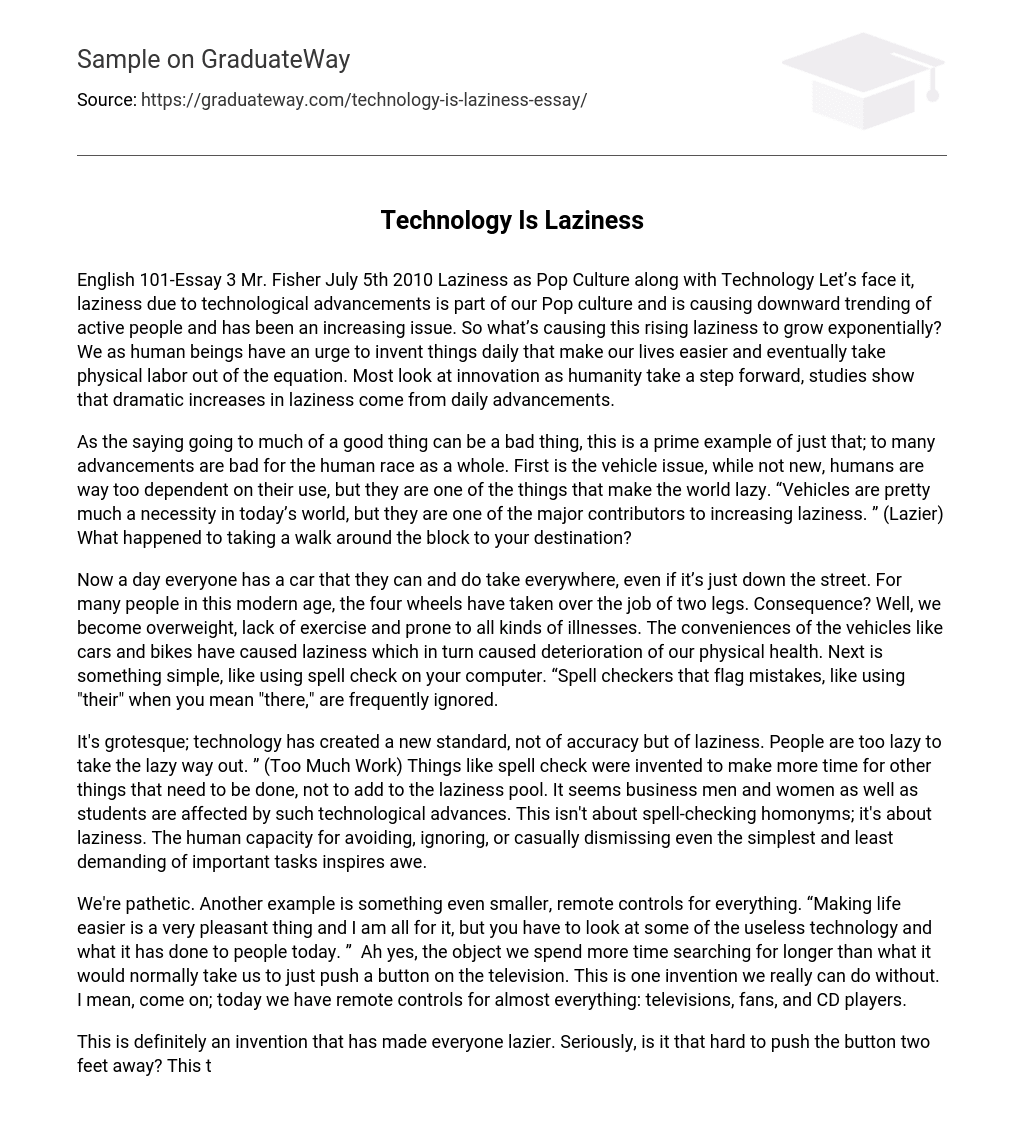Technological advancements have led to an increase in laziness in our Pop culture. These advancements have made life easier and eliminated the need for physical labor, resulting in fewer active individuals. While humans tend to invent things that simplify their lives, this constant innovation has been found by studies to contribute significantly to the rise of laziness.
Excess advancements can be detrimental to humanity as a whole, as the saying goes. This is clearly demonstrated by the excessive reliance on vehicles, which has caused people to become excessively lazy. As quoted from Lazier, “Vehicles are undeniably essential in the contemporary world, but they significantly contribute to the rise of laziness.” Whatever happened to simply taking a leisurely stroll to reach your destination?
The prevalence of car ownership in contemporary society has resulted in a reliance on vehicles for even short journeys, leading to detrimental effects such as weight gain, reduced physical activity, and heightened susceptibility to illness. The ease afforded by cars and bikes has fostered laziness, compromising our overall health. Similarly, the spell check function on computers is another example of convenient technology that often goes unnoticed despite its ability to identify errors like the misuse of “their” instead of “there”.
Technology has not only created a new standard but also a grotesque one – a standard of laziness rather than accuracy. People have become so lazy that they even opt for the easy way out. Spell check, for example, was not developed to contribute to this laziness, but rather to save time for other important tasks. Unfortunately, both business professionals and students are affected by this technological advancement. This issue goes beyond simply correcting homonyms with spell-check; it is a matter of laziness. It is astonishing to witness the human capacity for avoiding, disregarding, or dismissing even the simplest and least demanding tasks.
We are pathetic. Another instance is the proliferation of remote controls for various devices. “While making life easier is enjoyable, it’s important to acknowledge the impact of useless technology on people today.” Indeed, we often spend more time searching for this object than it would take to simply push a button on the television. It is one invention that we can live without. Remote controls can now be found for almost everything: televisions, fans, and CD players.
The invention in question undeniably promotes laziness as it requires minimal effort to press a button that is merely two feet away. This technological advancement exacerbates our laziness problems. Nevertheless, I highly doubt anyone would relinquish their cable remote now that we have all grown accustomed to its usage. Lastly, the internet stands as one of the most crucial innovations of our time and potentially the primary catalyst for laziness in today’s popular culture. With universal internet access, individuals possess unlimited potential for achievement.
The internet has revolutionized people’s lives, according to an article from Associated Content. It enables individuals to perform tasks without leaving their homes or going to the mailbox. They can do online banking, shopping, and bill payment with unmatched convenience. The internet provides everything they need at their fingertips, making people more idle as they no longer have a reason to go outside. Additionally, students can now attend lectures and take online classes while comfortably wearing their pajamas at any time of day.
Technology and laziness are intertwined in a relentless cycle. Throughout history, technology has been heralded as a means to increase productivity and liberate our minds for more profound thinking. Paradoxically, however, each new innovation entices us to engage in more idleness. This trend is seen in various aspects of contemporary pop culture, wherein countless products and services continue to reduce the effort required from individuals, reaching a point where physical exertion may no longer be necessary as advancements progress. It is crucial to recognize that not all elements entering our national Pop Culture landscape are advantageous, and there will come a time in the not-so-distant future when the drawbacks of technological advancements will outweigh its benefits.





